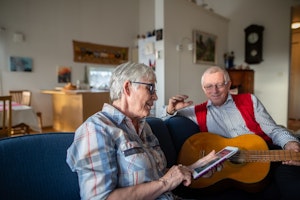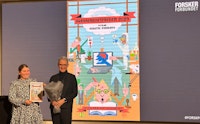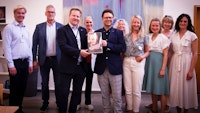HOMESIDE is about music, reading and dementia. It is a large international research project involving five countries and almost 1000 participants. The project participants are people with dementia living at home with a partner/spouse or another close person in the family who provides care (hereinafter referred to as carer).
HOMESIDE stands for «HOME-based family caregiver-delivered music and reading Interventions for people living with DEmentia): A Randomised Controlled Trial». Researchers from five countries are partners in HOMESIDE: Australia (which has the project leader), Germany, Poland, the United Kingdom and Norway. The research is supported by the EU Joint Programme for Neurodegenerative Diseases (JPND). The Norwegian Research Council funds the Norwegian partner, CREMAH at NMH.




